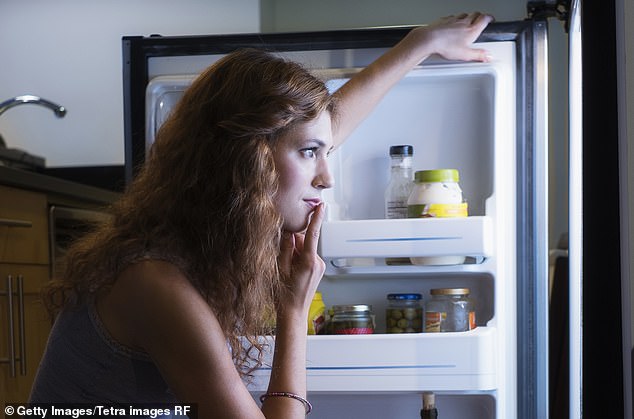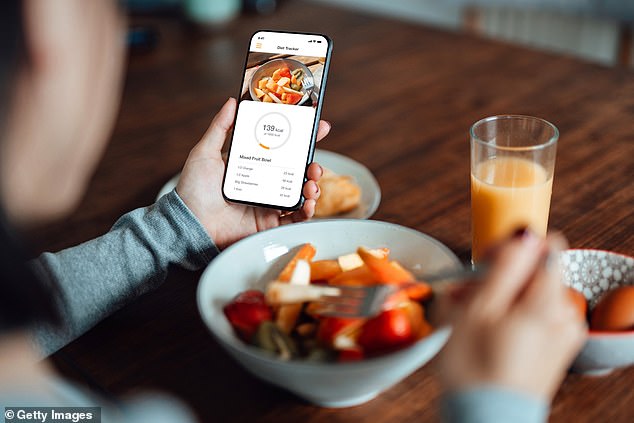Table of Contents
Never eat more than two eggs a day. Stick to whole wheat bread and avoid white. And avoid sugary soft drinks at all costs.
These are just three of the hundreds of so-called dietary “rules” we have been taught over the years and led to believe are key to optimal health.
But there is growing evidence to suggest that, in fact, a healthy diet is much simpler: it consists of a balance of all food groups, with little sugar and junk food, and lots of fruits and vegetables.
Now, dieticians have revealed the most common dietary beliefs that are totally false.
Many of them may come as a surprise; for example, the old idea that too many eggs are harmful due to high levels of cholesterol, the fatty substance that damages arteries.
You might also be surprised to know that low calories don’t necessarily make men healthier.
Read on to discover the seven most believed nutritional myths that leave dietitians most exasperated.
Dietitian Alyssa Pacheco said, “Opting for the lowest calorie options possible will usually leave you hungry and dissatisfied, which will eventually lead to overeating.”
‘NATURAL’ SUGAR IS HEALTHIER THAN TABLE SUGAR
Honey and maple syrup may have antioxidant, antimicrobial, and anti-inflammatory properties.
But exactly how this affects our health is still unknown. What has been shown is that “natural” sugars have the same calories as table sugar and a practically identical effect on our blood.
“At the end of the day, your body digests and considers all of these foods as sugar,” dietitian Alyssa Pacheco told Yahoo Life.
Excessive consumption of sugar of any type is harmful to health and can increase the risk of weight gain, leading to diabetes, cardiovascular disease, cancer, metabolic disorders, depression and cognitive decline.
Instead of worrying about what type of sugar you choose, Pacheco advises choosing the one you prefer and consuming it in moderation.
The American Heart Association recommends no more than six teaspoons of added sugar per day for women and nine teaspoons for men.

As long as your diet is well balanced, you shouldn’t need to get minerals from sea salt.
SEA SALT HAS ‘HEALING’ PROPERTIES
Like sugars, sea salt, Himalayan salt, and table salt are ultimately salt and contain about 40 percent sodium, which is the compound that affects blood pressure.
Sea salt has minimal processing and may contain small amounts of magnesium, calcium, and potassium.
Table salt, on the other hand, is processed to remove impurities and usually has iodine added for thyroid health.
But as long as your diet is well balanced, you don’t need to get minerals from sea salt.
“Excess sodium consumption is linked to high blood pressure and other health problems, so it is important to limit overall sodium intake regardless of the type of salt used,” said Michelle Rauch, dietitian at the Actors Fund.
DON’T EAT MORE THAN TWO EGGS A DAY
Another misconception is that eggs are bad for your health and increase cholesterol.
Due to their cholesterol content, eggs have long been the subject of intense debate over their role in causing heart problems.
But scientists have said there is no link. Studies show that the cholesterol in eggs does not appear to raise cholesterol levels like other foods, such as those high in saturated fat.
In a 2020 study, a US team led by a Harvard researcher found no association between egg intake and the risk of cardiovascular disease (CVD), which can lead to a heart attack or stroke.
“Eggs can be part of a healthy diet and support muscle maintenance and general well-being, help meet daily protein needs and are a versatile protein source that can be added to many different meals,” said the sports dietitian. Umo Callins.

People who exercise at the end of the day, for example, need something after training for muscle repair and growth.
DON’T EAT ANYTHING AFTER 6PM
‘Your body doesn’t have an internal clock that screams to your cells: “It’s 6pm, time to store this food for weight gain!” said Katie Schimmelpfenning, dietician and founder of Eat Swim Win.
“Energy is energy no matter when it is consumed.”
People who exercise at the end of the day, for example, need something after training for muscle repair and growth.
And people who work night shifts will need to eat while they’re awake, Schimmelpfenning said.
Studies have shown that it’s not when you eat that potentially causes weight gain, but what you eat.
Eating earlier in the day can help control hunger later and prevent you from overeating.
Dietitian and author Rhyan Geiger said, “It all comes down to the types of foods you choose.”
“Opting for fresh fruits, vegetables or whole grains is very different than opting for cookies, sweets and treats.”
SKIP BREAKFAST AND DRINK COFFEE TO AVOID OBESITY
Most of us rely on our morning coffee. But it is not a substitute for a meal or a substitute for breakfast.
While a cup of coffee may be rich in antioxidants, it only contains about five calories and contains no protein, fat, or carbohydrates.
Dietitian Patricia Kolesa said: “Although [some] Coffee includes proteins and fats from milk, it won’t leave you feeling full and energized in the same way that a conventional breakfast does.’
Nutritionists have also warned that coffee is acidic and therefore harsh on an empty stomach.
HOW ONLY FRESH PRODUCTS
Some people think they should stick to the outside areas of the store when shopping for food as that’s where the fresh produce is concentrated, but dietician Lauren Harris-Pincus said this would be a mistake and is a “harmful” myth. .
“The center aisles contain a treasure trove of nutrient-rich and cultural foods, including frozen fruits, vegetables and seafood, beans, canned fruits and vegetables, as well as dried beans, whole grains, nuts, seeds and spices,” she said.
Harris-Pincus recommends shopping in all areas of the supermarket that have high-quality whole foods.
But just because something is frozen doesn’t mean it’s worse than fresh, experts have said.
“Frozen fruits and vegetables may actually contain higher levels of nutrients,” said UK-based nutritionist Kim Pearson.
This is because they are frozen at their peak (just after being picked) and undergo minimal processing before being frozen, meaning they retain many of their nutrients, Pearson explained.
By contrast, fresh produce may sit in the supermarket for days or weeks after being picked, meaning it may have lost more nutrients by the time it is consumed.
Dietitian Alyssa Pacheco said, “Opting for the lowest calorie options possible will usually leave you hungry and dissatisfied, which will eventually lead to overeating.”
“Also, not eating enough calories can be counterproductive in the long term because it can lower your metabolic rate.”
Some high-calorie, high-fat foods, such as nuts, avocados, and oils, are packed with nutrients.
As with calories, low fat is not necessarily better than high fat. Fats are necessary to help us feel full, better absorb fat-soluble vitamins, and provide flavor.


